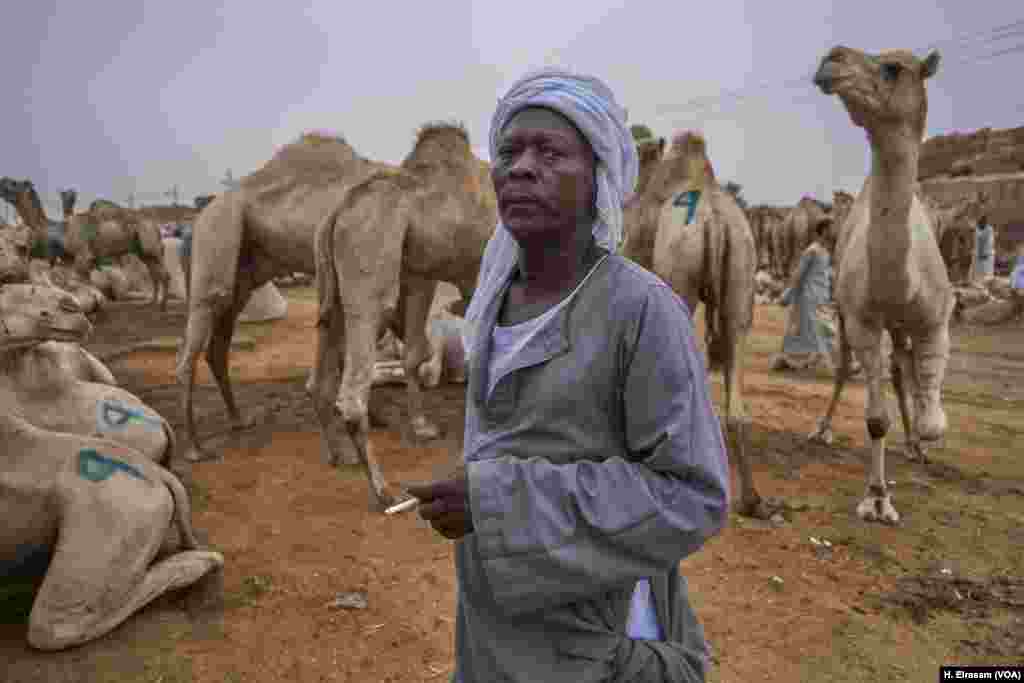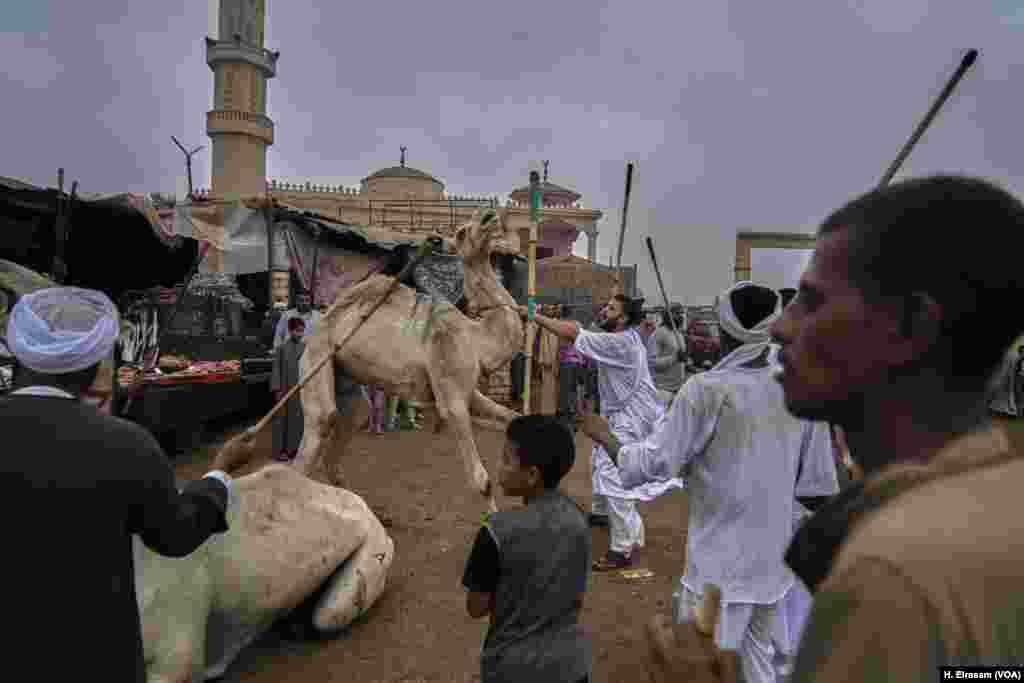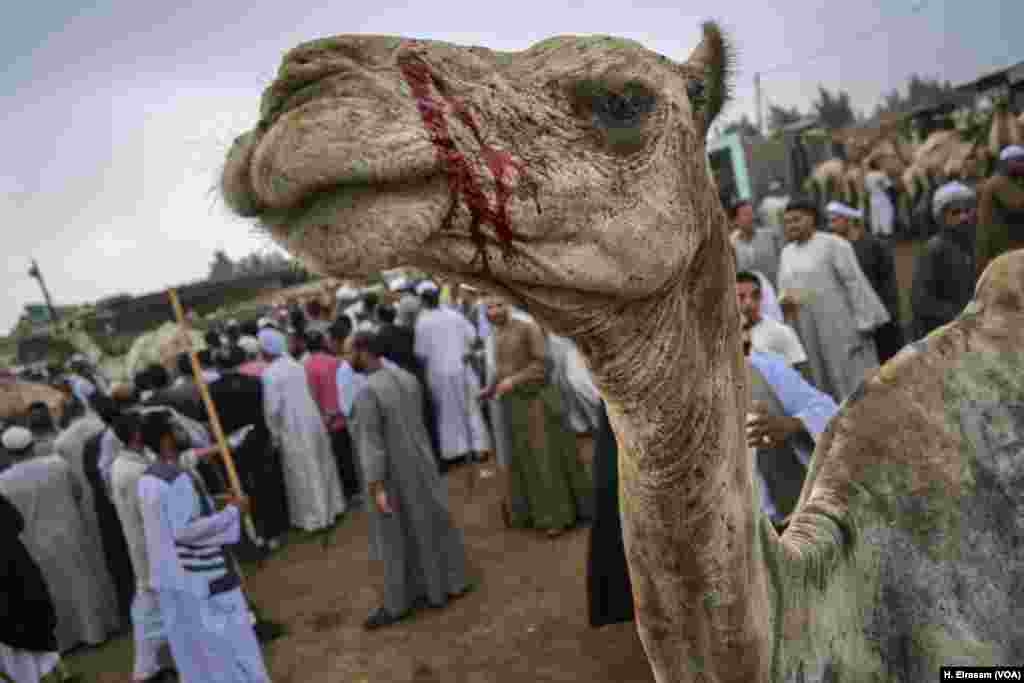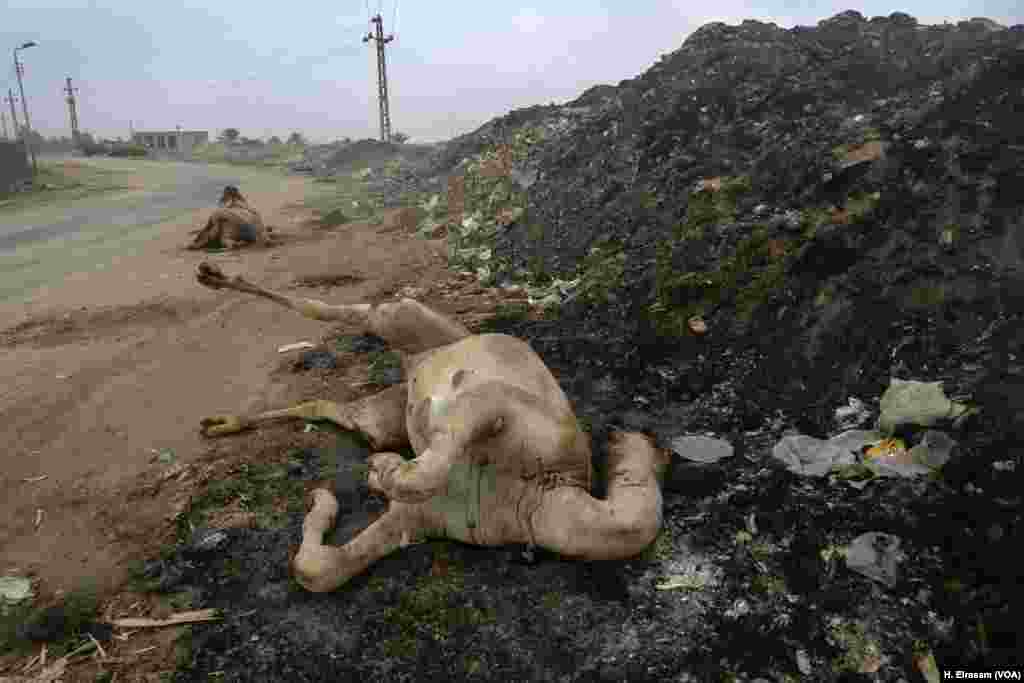In the weeks leading up to the Muslim sacrifice feast, the Birqash camel market outside Cairo springs to life, with camel sellers and buyers traveling from afar to make deals on the animals which are sold for meat, transportation, and tourism. The market is part of a long tradition and a tourist attraction, but under the colorful scene is what animal welfare activists say is a more sinister aspect: some of the animals do not survive the arduous journey on foot from as far away as Sudan. Those who do make it face what activists say is mistreatment that includes malnutrition, beatings and other forms of torture.
Eid Means Big Business - and Criticism - for Egypt's Camel Traders

9
There are incentives for treating animals well, says Soliman, a Sudanese camel herder. “We keep camels from getting injuries or marks,” he said. “They fetch a higher price.”

10
Herders beat an untamed camel, causing it to bleed. Egyptian animal welfare groups have protested practices at the Birqash market that they say include.

11
A camel bleeds after it is beaten for hesitating. Many of the animals, raised in the desert, resist and sometimes attack their herders.

12
A dead camel on the side of the road leading to the market. Some animals succumb after the arduous journey.



